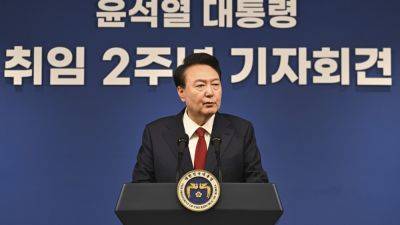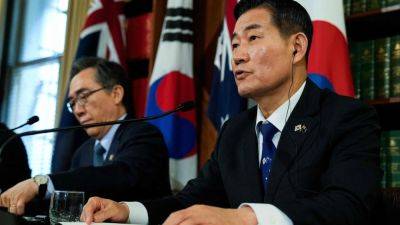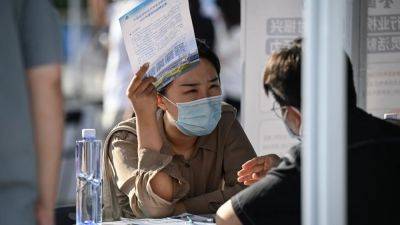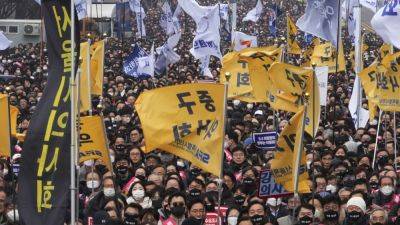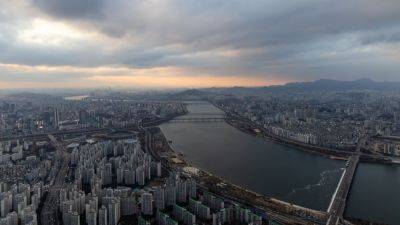South Korean government offers compromise on medical school quotas in bid to end walkout, following crushing election defeat
South Korea’s Prime Minister Han Duck-soo said on Friday the government will adjust its healthcare reform plans to let medical schools determine their own admissions next year in a bid to end a prolonged walkout by junior doctors.
The move comes after the ruling party’s crushing election defeat last week and amid a stalemate with doctors over plans to boost medical school admissions by 2,000 from 3,000 starting in 2025, eventually adding 10,000 more physicians by 2035.
Han said he accepted a proposal made on Thursday by deans of state-funded medical schools to scale back the increase by up to half and to give universities flexibility in determining their quotas, as a potential way to reach a compromise.
Thirty-two medical schools will now be allowed to lower their previously designated quotas by up to 50 per cent for next year, while the increases for 2026 and beyond will proceed as planned.
Han said the government had made a “bold decision” amid a lack of consensus in the medical community, mounting concerns over the walkout and the pressing need for universities to finalise their academic calendar for next year.
“By proactively accepting the deans’ recommendations, we’re hoping to create a chance to protect medical students, normalise education and resolve the dispute,” he told a briefing.
President Yoon has been pushing to add more doctors as an integral element of his medical reforms, an idea that has strong public support amid a shortage of physicians outside the greater Seoul area and in essential medical disciplines including emergency care and paediatrics.
The protesting physicians have said that the healthcare sector was not short of doctors, and the government’s plans fall short of addressing pay and working


